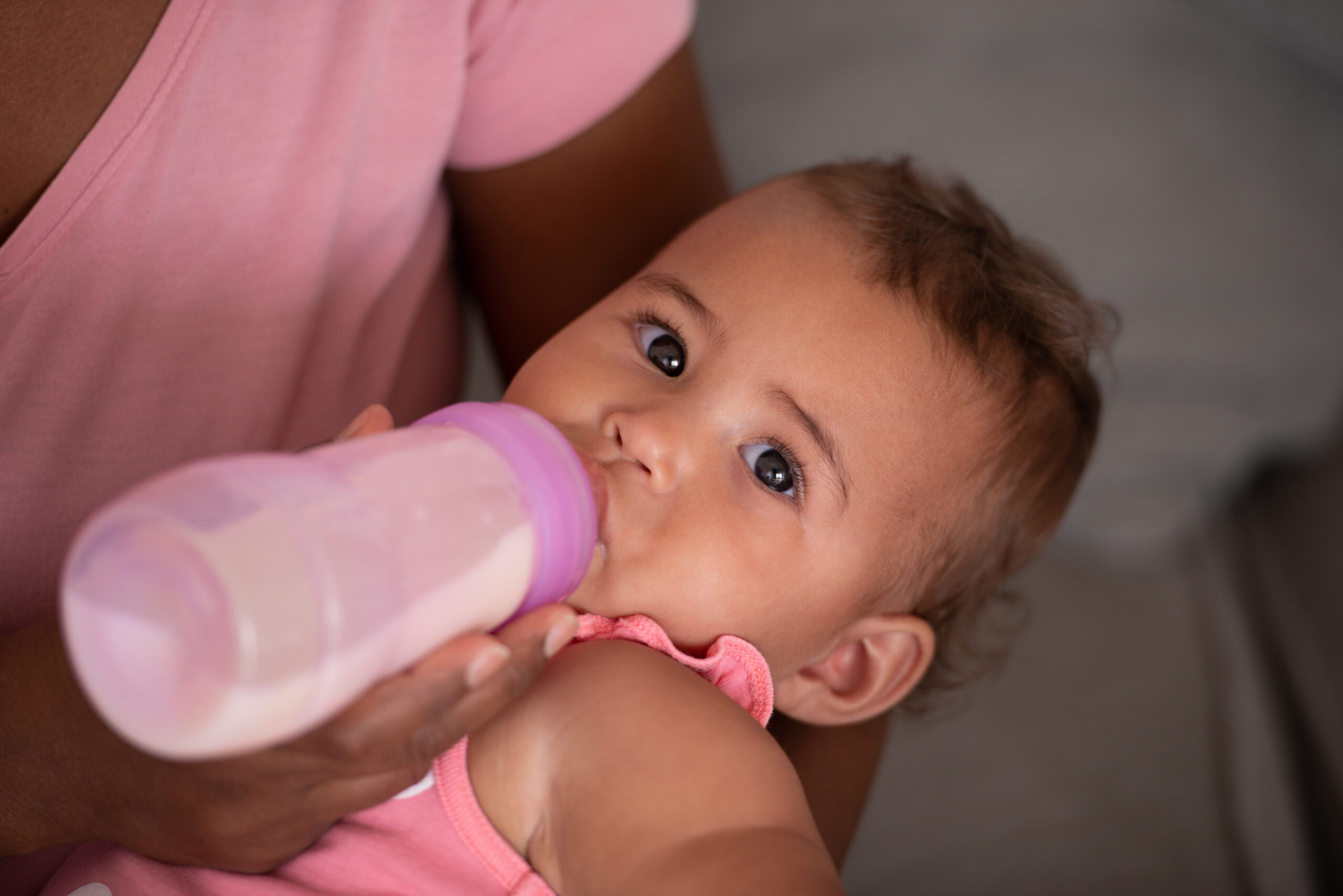
My babysitter was the first to break the news to me, “Did you hear that they are running out of baby formula?” I had been so wrapped up in caring for my sick kids the past couple of weeks that I hadn’t kept up with the news. When she first said this to me, I was confused by her question and thought for sure I heard her wrong. I mean, we’ve all heard of baby formula recalls and the occasional plant shutting down, but was she actually saying that I wouldn’t be able to find my twins’ formula anywhere?
Once I got all the facts straight, the panic hit
I bolted into the pantry to count how many canisters of formula we had left. Then, in a frenzied state, I combed through our diaper bags and through my minivan to see if we had any travel packets or pre-mixed bottles of formula in hidden crevices. After getting an accurate assessment of our reality, I frantically began the calculations in my head since immediate decisions had to be made — decisions I thought I had the luxury of never having to make.
As I evaluated our options, I could feel my heart racing and my body heating up as I tried to figure out how long we could make our current stash of formula last between our twin babies. Then I made the mistake of doing an internet search on the baby formula shortage in hopes of finding up-to-date information on contingency plans by the U.S. government and the four companies that control almost the entire baby formula industry. It pained me to see the “breast is best” messaging out in full force as a solution to this crisis.
My seven children were born out of international adoption, IVF, and two separate surrogacy journeys
My modern-day family has grown up on a mixture of formula and breast milk. With my first son, he was already being fed formula in Kazakhstan, so we transitioned him over to an American brand once we brought him home.
With my next set of twins (an IVF pregnancy carried to term), I was so desperate to make breastfeeding work. I wanted to provide my kids with the benefits of breast milk and have that bonding experience, but in truth, there were other factors contributing to my insistence on breastfeeding. The years of unsuccessful IVF cycles and a second-trimester pregnancy loss made me feel incompetent as a woman. I had finally achieved success in becoming pregnant and sustaining a pregnancy, and I wasn’t about to fail at feeding my children, an innate duty ingrained in me as a woman much like the ability to conceive. Inevitably, I had to come to terms with supplementing my supply with formula in order to feed my babies.
After our first set of twins, we welcomed two more sets of twins — this time born out of surrogacy. In each instance, we tried to work with breast milk from the surrogate for the first couple of months but then switched to formula. Factoring into our decision was the cost of the breast milk, shipping, storage, and payment to the surrogate in comparison to the cost of formula. In the end, formula feeding felt like the best fit for the demands of our growing family.
Interwoven into this paramount choice were feelings of shame and guilt at not being able to feed them myself
With the first two sets of twins, I only had to contend with the expectations that I had gleaned over the course of my life from society about the best way to feed your baby: the breast. With my last set of twins born in 2021, deep in the age of social media, I was constantly bombarded with images of women breastfeeding their babies as well as posts about breastfeeding’s superiority.
As a mother who welcomed children into her family via alternative methods, I didn’t feel seen, heard, or represented in the mainstream baby-feeding conversation. Instead, I felt stigmatized for not making greater efforts to secure breast milk for my children.
To be inclusive in this baby-feeding conversation, it’s imperative to expand our notions of what families look like
We need to take into account the many ways in which families are created – adoption, surrogacy, LGBTQ+ parents, and foster families. If the overall tone of the conversation changes from “breast is best” to “fed is best,” then the families that pursue alternative paths to parenthood can make their feeding choices in a less judgmental environment free from reproach.
As it turned out, luck was on my side during this baby formula shortage. I had enough formula to make it to my twins turning one. I had wanted to transition them into milk a little bit after their first birthday since they were born at 37 weeks, but I had no choice but to be flexible. It didn’t make sense to drive for hours looking for formula or find a way to ship international formula across the border like so many other desperate parents. It felt necessary to leave those supplies for babies who really needed it.
Even though President Biden recently invoked the Defense Production Act to combat the national formula shortage and is launching Operation Fly Formula to get international formula into the hands of those in need, I still could not wait the weeks or months for this to increase overall supply.
We started their milk transition this week, and I’m just crossing my fingers that all goes well because I don’t have a backup plan. As the government examines ways to overhaul the baby formula monopoly and the policies that perpetuate a flawed system, I hope we can also take into consideration the diverse ways that children are welcomed into families. Acceptance of this diversity as normal will hopefully translate into a more inclusive and supportive approach to baby feeding.




